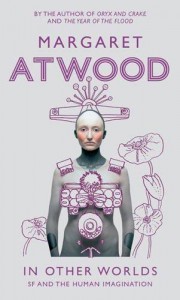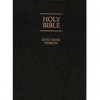14
Followers
7
Following
REALJimBob
Fortysomething, photographer slacker, working in IT, living in Greenwich; failed polymath; drinks and eats too much, reads too little...
 A book I'd been hoping to read for a while. It was on my birthday list and my sister, and her husband, were kind enough to oblige. As I unwrapped it (remembering to use my grateful face) my sister shared two thoughts with me. Firstly, she was surprised that I had asked for a Margaret Atwood book as she really didn't see her as my 'type of author', and secondly, why was Margaret Atwood writing a book about science fiction - after all, she didn't really write science fiction.
A book I'd been hoping to read for a while. It was on my birthday list and my sister, and her husband, were kind enough to oblige. As I unwrapped it (remembering to use my grateful face) my sister shared two thoughts with me. Firstly, she was surprised that I had asked for a Margaret Atwood book as she really didn't see her as my 'type of author', and secondly, why was Margaret Atwood writing a book about science fiction - after all, she didn't really write science fiction.My sister likes to speak her mind - she might even be thought to sound a bit 'superior' to the untrained ear (she is a university lecturer after all, whereas I am much less well educated), she did also describe my Goodreads profile as a list of books she wouldn't want to read - but she's right, I've never ready any Margaret Atwood before, and feminist literature wouldn't normally be my go-to genre. After my first question as to how she would categorise The Handmaid's Tale left her a little more subdued we got to the reason why I wanted to read this book - Atwood is an author that, according to many science fiction reviewers, clearly seems to write science fiction, yet she's reputed to have voiced a somewhat disparaging view of the genre on at least one occasion - something along the lines of 'science fiction is characterised by talking squids in space'. Obviously, the actual interview is not available online - at least I couldn't find it - so the context of the discussion is hard to gauge. The quotes you can find are, selectively edited down, on the sites that seem to by the hardest on her view. So what to think. Luckily, just in time, Atwood kindly decides to write a book that describes "her lifelong relationship with the literary form we have come to know as 'science fiction'". That should answer my questions ...
The book is broken down into three sections - firstly an autobiographical section, the titular 'In Other Worlds', describes Atwood's introduction to books, her obvious love and fascination with science fiction as a genre, with comics, through her university and post-graduate writings. These are more than nostalgic memoirs though, as much as she'd like to sidestep it in the introduction, it is the beginnings of an academic study of science fiction. Her understanding, and biases, of the genre term science fiction, mythologies, theologies, utopias and dystopias. Ending with an overview of her three science/speculative fiction novels - The Handmaid's Tale, Oryx and Crake and The Year of the Flood.
The second section, 'Other Deliberations', is a collection of some of Atwood's literary reviews. Her reviews of H. Rider Haggard's She, a collection of Ursula K. Le Guin's short stories, George Orwell's Nineteen Eighty-Four and Animal Farm, Brave New World, H.G. Wells's The Island of Dr. Moreau amongst others. Each and insightful detailed investigation of the work. Even the books I'd already read suddenly felt like I'd barely read them at all, I'd missed the point. Great - more books to add to my to-reread shelf.
Finally, the third section, 'Five Tributes', contains five works of science/speculative fiction. Each a short story in a different vein. But each more, or less, science fiction (or speculative fiction if that's what you'd like it to be):
Cryogenics: A Symposium explores the risks, and costs, of having your head frozen to be woken up in the future. Told from the point of view of a conversation at a dinner party. What happens when it all goes wrong? If you can't afford to have your whole body frozen, maybe you can only afford your head? Definitely science fiction here - there's science - going wrong - and it's in the future.
Cold-Blooded explores a first-contact situation. Except they've come to us. And they're insects. Eventually they come to communicate with us, but they don't understand us, we're just too different. Science fiction again. Aliens, space travel, and giant talking insects (no squids though).
Homelanding is about an alien tour or an apparently backward world. Where the tour is treated as a museum exhibit. More aliens, possibly not on earth. Again pretty sure this is science fiction.
If we left a time capsule for the future. Long after we're dead. Long after the planet is dead. What would it say. Time Capsule Found on the Dead Planet is the letter in the time capsule. Sounds like more far-future stuff, presumably an alien is reading it. Yep, it's science fiction.
The last story is more complicated. The Peach Women of A a'A is a short story, told by a character in one of Atwood's own novels, The Blind Assassin. Recursive. While the novel isn't science fiction (I don't think - I haven't actually read it), the character telling the short story is an author of pulp science fiction - asked for a story with a happy ending this is what he produces. It tells the story of two men involved in the defence of Earth against the Lizard men of Xenor. As they are shot down and about to die, they are rescued by the peach women of the title, who heal them and proceed to tend to their every want. Of course, as a true utopia, having everything you want gets pretty boring (eventually) and they (or the protagonists of the containing novel) have to decide if they should stay in the happy world of A a'A or break out of the utopia to almost certain not happiness. Aliens, space ships, morphing peach women aliens, lizard men. All pretty standard science fiction.
Two appendices close the book out. A letter to a school district that had tried to ban The Handmaid's Tale, and to the students and teachers that fought it. And a discussion of the impact of pulp science fiction covers, "bountifully endowed" women wearing skimpy chain mail tops, on her characters and her own fiction.
Overall, this is an absolutely fascinating book. A real insight into Margaret Atwood's preferences, theories, and biases about the science fiction genre. I entirely understand where she's coming from, the term has become loaded, is restrictive, and makes for uncomfortable classifications for a large number of works. Personally, I think the whole thing is a bit of a storm-in-a-teacup, but I enjoyed finding out a little bit as to why Atwood may (or may not) disagree with me. Which brings me to my two niggles. Even combined they aren't enough to dent the 5-star rating this book deserves, but ... For all the words in the book, it doesn't ever seem to answer the two key questions I went into the book with - why are you writing the book and how does it, specifically, tie into the annoyance that parts of the Internet seem to have with the squid comments? And, if you don't totally like the genre labels that we have do you have a clear idea of the taxonomy that you'd like to see instead? Both of these questions felt, to me, skirted around somewhat and not directly addressed. And secondly, if Atwood thinks that the genre label science fiction is too limited - why does she feel the need to, when discussing The Island of Doctor Moreau, state "... the book is certainly not a novel, if by that we mean a prose narrative dealing with observable social life."? Although phrased as a question, it doesn't read like one, and seems to imply that Atwood would almost like to limit the term novel itself as a kind of genre - one that would not apply to most science fiction (or even speculative fiction). In fact, earlier on in the book she describes her own three SF books as "novel-length ustopias". Aren't they still novels?



